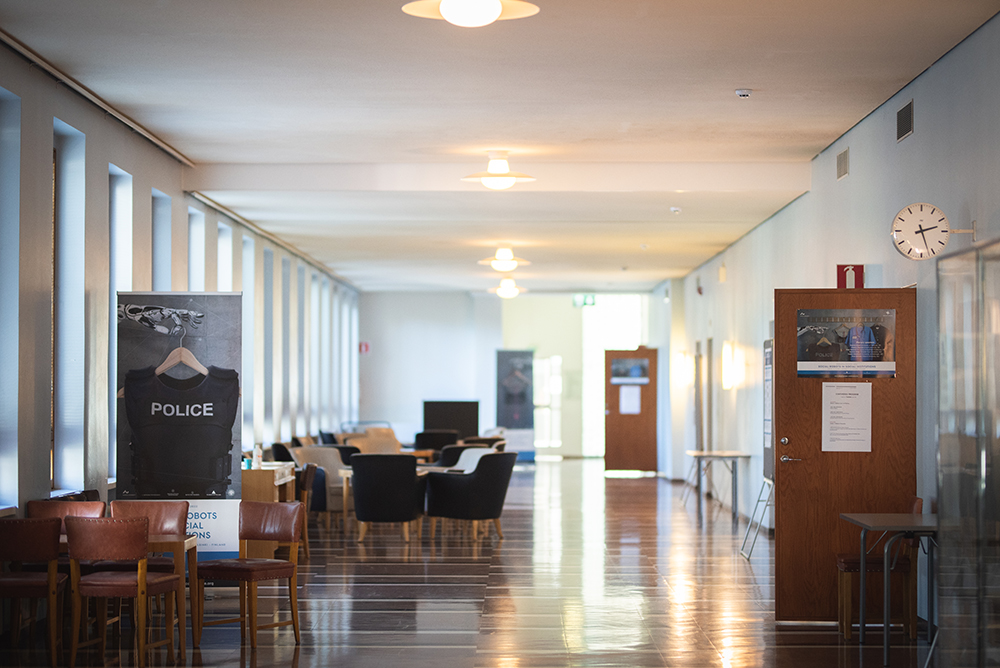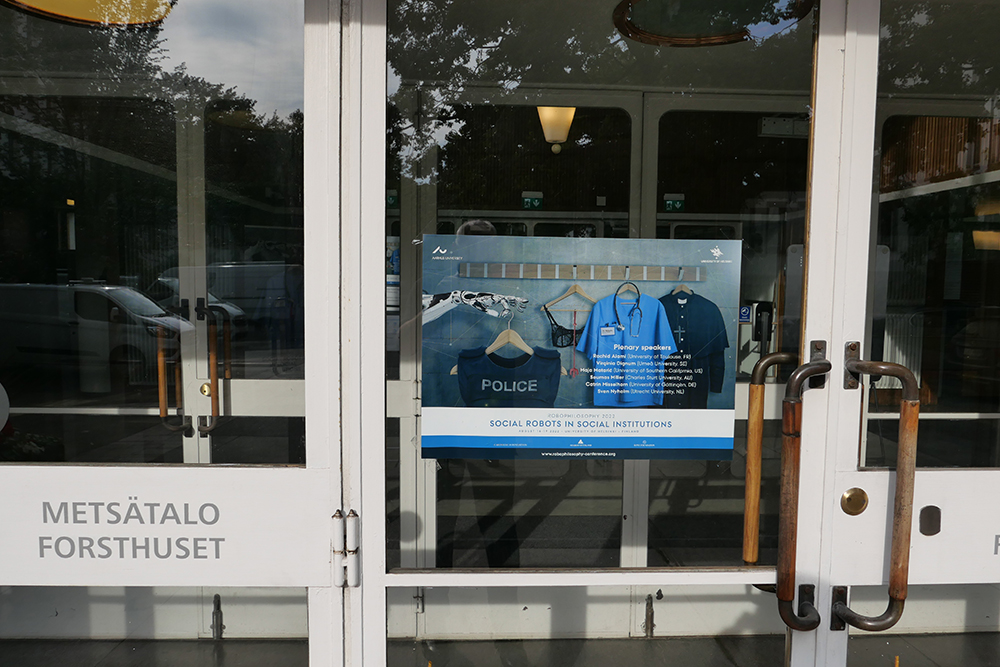In January 2023, the Proceedings of Robophilosophy 2022 were published. Included is the paper “Robots in Policing” by Oliver Bendel. From the abstract: “This article is devoted to the question of how robots are used in policing and what opportunities and risks arise in social terms. It begins by briefly explaining the characteristics of modern police work. It puts service robots and social robots in relation to each other and outlines relevant disciplines. The article also lists types of robots that are and could be relevant in the present context. It then gives examples from different countries of the use of robots in police work and security services. From these, it derives the central tasks of robots in this area and their most important technical features. A discussion from social, ethical, and technical perspectives seeks to provide clarity on how robots are changing the police as a social institution and with social actions and relationships, and what challenges need to be addressed.” (Abstract) Robots and AI systems in police work have become a hot topic. The author accepted manuscript of this article is therefore being made freely available on this site for non-commercial use only and with no derivatives, in line with the publisher’s self-archiving policy.
About Robots in Policing
In January 2023, the Proceedings of Robophilosophy 2022 were published. Included is the paper “Robots in Policing” by Oliver Bendel. From the abstract: “This article is devoted to the question of how robots are used in policing and what opportunities and risks arise in social terms. It begins by briefly explaining the characteristics of modern police work. It puts service robots and social robots in relation to each other and outlines relevant disciplines. The article also lists types of robots that are and could be relevant in the present context. It then gives examples from different countries of the use of robots in police work and security services. From these, it derives the central tasks of robots in this area and their most important technical features. A discussion from social, ethical, and technical perspectives seeks to provide clarity on how robots are changing the police as a social institution and with social actions and relationships, and what challenges need to be addressed.” (Abstract) Robots in policing is a topic that has not received much attention. However, it is likely to become considerably more topical in the next few years. More information about the conference on cas.au.dk/en/robophilosophy/conferences/rpc2022 (Photo: Anna Jarske-Fransas).
Talk about Robots in Policing in Helsinki
On the first day of Robophilosophy 2022, Oliver Bendel presented his paper “Robots in Policing“. From the abstract: “This article is devoted to the question of how robots are used in policing and what opportunities and risks arise in social terms. It begins by briefly explaining the characteristics of modern police work. It puts service robots and social robots in relation to each other and outlines relevant disciplines. The article also lists types of robots that are and could be relevant in the present context. It then gives examples from different countries of the use of robots in police work and security services. From these, it derives the central tasks of robots in this area and their most important technical features. A discussion from social, ethical, and technical perspectives seeks to provide clarity on how robots are changing the police as a social institution and with social actions and relationships, and what challenges need to be addressed.” Robots in policing are a topic that has yet to receive much attention. However, it is likely to become considerably more topical in the next few years. More information about the conference on cas.au.dk/en/robophilosophy/conferences/rpc2022.
Robots in Law and Policing
Robophilosophy 2022 at the University of Helsinki is the fifth event in the biennial Robophilosophy Conference Series. It “will explore the societal significance of social robots for the future of social institutions with its usual broad scope, embracing both theoretical and practical angles” (CfP Robophilosophy). It “is an invitation to philosophers and other SSH researchers, as well as researchers in social robotics and HRI, to investigate from interdisciplinarily informed perspectives whether and how social robotics as an interdisciplinary endeavour can contribute to the ability of our institutions to perform their functions in society” (CfP Robophilosophy). Social institutions include retirement and nursing homes, strip clubs and brothels, monasteries and seminaries, and police departments. Oliver Bendel (School of Business FHNW) will have the opportunity to present his paper entitled “Robots in Policing” in session 1, “Robots in Law and Policing”. Cindy Friedman (“Granting Negative Rights to Humanoid Robots”) and Jakob Stenseke (“The Use and Abuse of Normative Ethics for Moral Machines”) will speak after him. In addition, a poster by Katharina Kühne and Melinda Mende (University of Potsdam) as well als Oliver Bendel entitled “Tamagotchi on our couch: Are social robots perceived as pets?” was accepted. The full program is now available online.
Robots and Cops
Robophilosophy 2022 is the fifth event in the biennial Robophilosophy Conference Series. It “will explore the societal significance of social robots for the future of social institutions with its usual broad scope, embracing both theoretical and practical angles” (CfP Robophilosophy). It “is an invitation to philosophers and other SSH researchers, as well as researchers in social robotics and HRI, to investigate from interdisciplinarily informed perspectives whether and how social robotics as an interdisciplinary endeavour can contribute to the ability of our institutions to perform their functions in society” (CfP Robophilosophy). Social institutions include retirement and nursing homes, strip clubs and brothels, monasteries and seminaries, and police departments. As announced by the organizers on April 15, Oliver Bendel (School of Business FHNW) will have the opportunity to present his paper entitled “Robots in Policing” at the conference. It is about how service robots and social robots are changing policing as “social work”. In addition, a poster by Katharina Kühne and Melinda Mende (University of Potsdam) as well als Oliver Bendel entitled “Tamagotchi on our couch: Are social robots perceived as pets?” was accepted.




